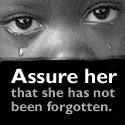Dallas Willard has had a huge influence on the evangelical Christian community over the last couple decades. He has written some very important books during that time. His latest, ‘Knowing Christ Today: Why We Can Trust Spiritual Knowledge ’ is the first book that I have read by this author. Reading a book by Dr. Willard by me is long overdue!
’ is the first book that I have read by this author. Reading a book by Dr. Willard by me is long overdue!
Here is the biography of Dr. Willard from the book cover flap:
Dallas Willard is a bestselling author and professor at the University of Southern California’s School of Philosophy, and has held visiting appointments at UCLA and the University of Colorado. His groundbreaking book The Divine Conspiracy  and The Spirit of the Disciplines
and The Spirit of the Disciplines forever changed the way thousands of Christians experience their faith. Willard won the Christianity Today book award in 2007 for The Great Omission
forever changed the way thousands of Christians experience their faith. Willard won the Christianity Today book award in 2007 for The Great Omission . He lives in Chatsworth, California.
. He lives in Chatsworth, California.
Dr. Willard explains the purpose for this book in the Introduction:
This book is about knowledge and about claims to knowledge in relationship to life and to Christian faith. It is concerned, more precisely, with the trivialization of faith apart from knowledge and with the disastrous effects of a repositioning of faith in Jesus Christ, and of life as his students, outside the category of knowledge. This is one result of the novel and politically restricted understanding of knowledge that has captured our social institutions and the popular mind over the last two centuries in the Western world.
At some point in time, it became a popular notion that believing in Jesus and knowledge are not necessarily compatible; that thought has even been accepted by Christians. Dr. Willard posits that knowledge matters:
Knowledge, but not mere belief or commitment, confers on its possessor an authority or right – even a responsibility – to act, to direct action, to establish and supervise policy, and to teach. (p. 17)
Dr. Willard expands upon a particular passage of scripture which deals with knowledge, Hosea 4:6:
My people are destroyed from lack of knowledge; because you have rejected knowledge, I reject you from being a priest to me. And since you have forgotten the law of your God, I also will forget your children.
Dr. Willard asserts:
To say that “the righteous (or just) shall live by faith” does not mean that they live by blind and irresponsible leaps in total absence, or even in defiance, of knowledge. It does not mean that the “just” live in a state of ignorance or stupidity. They do on occasion act in specific ways beyond what they know, but only within a framework of knowledge that makes such action reasonable. (p. 37)
Dr. Willard points out that Jesus answers five worldview questions (pp. 50-55):
Question # 1: What is real? What is reality?
Answer # 1: God and his kingdom
Question # 2: Who is well-off, blessed?
Answer # 2: Anyone who is alive in the kingdom of God
Question # 3: Who is a really good person?
Answer # 3: Anyone who is pervaded with love.
Question # 4: How do you become a really good person?
Answer # 4: You place your confidence in Jesus Christ and become his student or apprentice in kingdom living.
Dr. Willard asserts that there are currently three competing worldviews (p. 62):
1. Theistic story – consists of Christianity’s four answers of Jesus and his tradition to the four worldview questions.
2. Nirvana story – most familiar today through current presentations of the teaching of Buddhism and through many of the popular arts along with “New Age” presentations of various kinds.
3. Naturalistic/secularist story – often tries to present itself as the findings of science. This one now attempts to dominate our main social and political institutions.
This fine author explains that law is now more important than morality in the United States:
What is permissible and what is done, much less what is required in social and governmental institutions and policies, are no longer to be decided by reference to what is morally good, admissible, or right, but ultimately in the United States by reference to the Constitution and the U.S. Supreme Court. (p. 69)
Dr. Willard uncovered four major causes of the elimination of moral knowledge from the knowledge institutions of our society (p. 79):
1. The failure of the church to guide the development of modern societies into the ways of Jesus Christ
2. The failure of modern thinkers and scholars to find a secular basis for Christian moral principles
3. The emergence of many “moralities” at the hands of anthropological “research”
4. The disappearance of the human self at the hands of the “advances” in psychology
Dr. Willard brings up the important subject of the resurrection of Jesus, and how it relates to knowledge:
Can we know that Christ rose from the dead? Yes, if we will but “do the math.” That he arose is the only plausible explanation for what happened after his death and what still exists today as a consequence. The established mental habit of many people today is to say with no thought, no hesitation, that he did not arise. There are numerous causes of this. For one thing, to many people this is a “religious” question, and therefore it automatically falls outside the domain of facts and knowledge. (p. 134)
I loved how Dr. Willard explains our interaction with Jesus and His Kingdom:
To know Christ in the modern world us to know him in your world now. To know him in your world now is to live interactively with him right where you are in your daily activities. This is the spiritual life in Christ. He is, in fact, your contemporary, and he is now about his business of moving humanity along toward its destiny in this amazing universe. You don’t want to miss out on being a part – your part – of that great project. You want to be sure to take your life into his life, and in that way to find your life to be “eternal,” as God intended it. (p. 139)
That’s the most exciting news I have read in a long time!
One of the most important sections of this book is found in Chapter 8: Pastors as Teachers of the Nations:
To make “disciples” of Jesus is to bring knowledge of him to people in such a way that they want to know his answers to these questions, and the roles of pastors is to help them attain the knowledge they seek. Their task is not to get people to believe things, to share “Christian” feelings or rituals, to join Christian groups… The task of Christian pastors and leaders is to present Christ’s answers to the basic questions of life and to bring those answers forward as knowledge – primarily to those who are seeking and are open to following him, but also to all who may happen to hear, in the public arenas of a world in desperate need of knowledge of what is real and what is good. (p. 198)
I found this to be a very valuable work; it lived up to my expectations of what a Dallas Willard book would be. Dr. Willard has the credentials that will be respected by Christians and non-Christians alike, and should be read by everyone, regardless of one’s worldview. He writes on a scholarly level; this is not easy reading, but it’s worth the effort. In addition to the valuable content, which chapter also concludes with Discussion Questions; therefore, it could work for individuals or small groups.
You can order this book here .
.
This book was provided by HarperOne, an imprint of HarperCollins Publishers, for review purposes.




























.jpg)







No comments:
Post a Comment